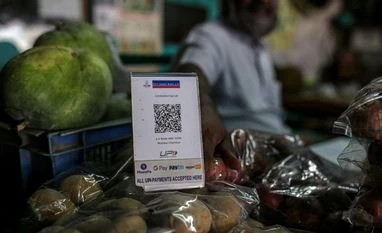By Preeti Singh
India’s rapidly developing instant payments system, the Unified Payments Interface, drove digitisation in the world’s most populous country. Now, risks need to be managed for its new voice-enabled feature to ensure further inclusion, according to bankers.
The government-backed feature called Hello UPI will allow users to pay via apps and calls in Hindi and English, and will soon roll out services in other regional languages. The launch of this artificial intelligence-powered service seeks to widen access of digital payments to more people, including the elderly, though adoption could be tentative at the start.
There is currently no “wild demand” for such a feature, though the proposition is an exciting one, Akhil Handa, chief digital officer at Bank of Baroda, said at a fintech conference last week.
Adoption would first happen “through something as innocuous as messaging” and then through commerce as customers look to purchase things, Handa said. People will be more comfortable making voice-enabled payments to contacts they know or to merchants who are in front of them, he said.
With Indians exchanging billions of messages each day on messaging apps, the take-up of this technology would accelerate even if between 1 per cent and 10 per cent of customers begin making voice-enabled payments, Handa said.
More From This Section
The voice feature is one of several additions to UPI that has helped make QR-powered payments ubiquitous across India in the last few years. Millions use their smartphones to make purchases of small items like vegetables, or to transfer salaries to household staff. More than 10 billion transactions were carried out in August and this number is steadily rising, Shaktikanta Das, governor of the Reserve Bank of India, said last week at the conference.
Voice-enabled UPI could expand financial inclusion and help bring in the next 100 million or 200 million customers on the platform, according to Nitin Chugh, head of digital banking and transformation at the nation’s largest lender State Bank of India. It however comes with risks that could derail the efforts to make it accessible, he said.
People will need privacy when they perform such transactions, Chugh said. It is also important for the technology to address issues of noise cancellation and recognition of commands, he said.
“We have voice-enabled search, voice-enabled commands, voice-enabled transactions. I think it is not a tech problem, it’s more of a risk issue that has held us back from taking it to scale,” Chugh said at the fintech event. “We don’t want people who today have limited access getting access and then getting exposed to vulnerabilities.”
)